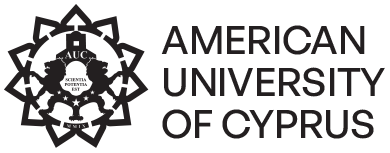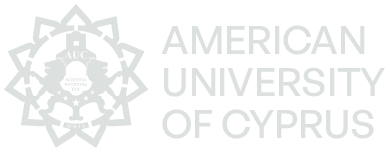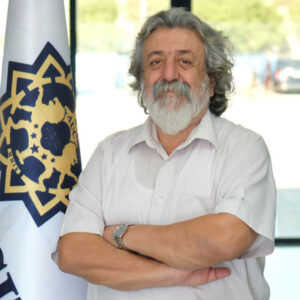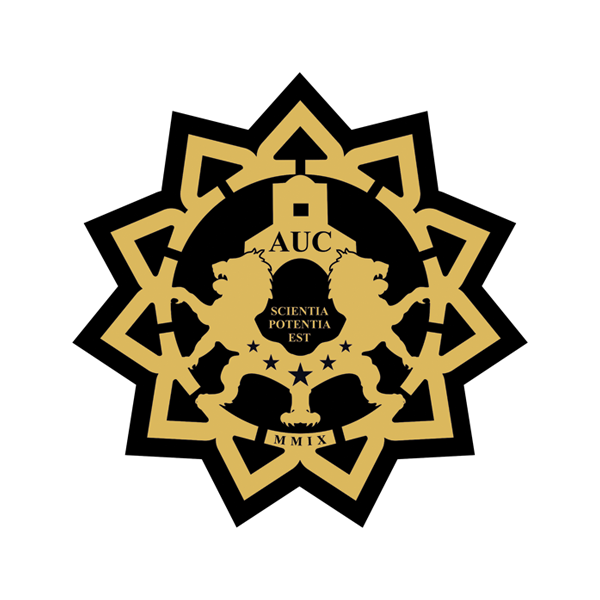Information Technology (without Thesis)
The Master of Technology in Information Technology (M.Tech. in IT) is a professionally oriented graduate program designed to provide advanced instruction in cutting-edge computing and information technologies. It addresses the growing global demand for IT professionals who possess a sophisticated blend of theoretical insight and practical expertise to design, implement, manage, and maintain complex IT systems across diverse sectors.
This non-thesis program is particularly suited for both recent graduates and working professionals seeking to deepen their technical knowledge and enhance their career prospects in the dynamic field of information technology. The curriculum combines core theoretical foundations with a strong emphasis on real-world applications through project-based coursework and hands-on learning experiences.
Graduates will develop expertise in areas such as systems and database design, client/server architectures, desktop and web application development, web services, networking, cybersecurity, and the ethical dimensions of IT practice. The program culminates in a capstone term project, providing students the opportunity to synthesize their learning in a practical and research-informed context.
Program Structure
The M.Tech. in IT is a non-thesis graduate program consisting of:
- 4 core courses
- 6 elective courses
- 1 term project
This structure provides both depth and flexibility, enabling students to tailor their studies to individual career goals or emerging areas of specialization within the field.
Admission Requirements
Applicants must hold a bachelor’s degree from an accredited institution in Information Technology, Computer Science, Computer Engineering, Management Information Systems, or a closely related field. Applicants from other disciplines may be required to complete a set of bridging/deficiency courses, as determined by the Graduate Committee of Information Technology.
Candidates who do not fully meet the academic prerequisites may be invited for an interview with the Graduate Committee. Admission decisions, as well as the determination of required preparatory coursework, will be finalized based on the outcome of this evaluation.
Educational Objectives
The program is designed to empower graduates with the ability to:
- Address organizational and societal needs through the strategic selection, implementation, and integration of computing technologies.
- Contribute meaningfully as knowledgeable, ethical, and innovative professionals in the IT field.
- Apply best practices and emerging tools to solve practical challenges in diverse computing environments.
- Understand and manage the ethical dimensions of technology design, implementation, and research.
Graduate Attributes
Graduates of the M.Tech. in Information Technology program will be able to:
- Contribute to society as ethically responsible, informed, and expressive professionals.
- Apply advanced IT knowledge to design and implement innovative solutions to complex problems.
- Conduct research using qualitative, quantitative, or mixed methodologies.
- Leverage current technologies and tools to develop real-world IT applications.
- Understand and manage the complexities of modern network systems, with an emphasis on wireless and optical networking.
- Demonstrate leadership and project management skills in technological and multidisciplinary settings.
- Adapt to evolving trends and technologies in the IT sector for continuous professional development.
Learning Outcomes
Upon completion of the program, graduates will be able to:
- Demonstrate in-depth understanding of contemporary themes and research in their chosen IT specialization.
- Evaluate and address ethical considerations in both IT practice and academic research.
- Apply expert-level skills in IT leadership, system design, and strategic planning.
- Communicate effectively in professional and technical contexts.
- Justify IT solutions through critical evaluation of alternatives aligned with organizational goals.
- Lead IT initiatives, showcasing advanced project management competence.
- Analyze the societal, ethical, and regulatory implications of IT systems and technologies.
- Design secure, resilient IT systems by selecting and implementing appropriate technologies and policies.
Research Interests
Faculty members in the department engage in diverse, cutting-edge research across a wide range of areas, including but not limited to:
- Wireless and mobile communications
- CDMA systems and channel estimation
- Fuzzy systems and intelligent control
- Renewable energy and environmental sustainability
- IT project management and business intelligence
- Data mining, machine learning, and information extraction
- Supervisory control theory and systems control
- Cryptography, data privacy, and network security
- Signal processing, digital filter design, and forensics
- Global positioning systems (TOA, AOA, TDOA methods)
- E-learning, ICT in education, and online project-based learning
- Engineering and vocational education
- Power electronics and broadband communication systems
- Sliding mode control and decoupled nonlinear systems
This active research environment provides students with opportunities to engage with emerging technologies and methodologies, enhancing both academic and professional growth.
Department Information
Program Type
Program Approval
Program Language
Prep School
SYLLABUS
Course Program
| a | b | c | empty | |||||||
|---|---|---|---|---|---|---|---|---|---|---|
| ITEC511 | IT Project Management / BT Proje Yönetimi | 3 | ITEC521 | Computer Networking Applications / Ağ Uygulamaları | 3 | |||||
| ITEC512 | Principles of Programming Languages / Programlama Dilleri ve Prensipleri | 3 | Elective Course IV / Seçmeli Ders IV | 3 | ||||||
| Elective Course I / Seçmeli Ders I | 3 | Elective Course V / Seçmeli Ders V | 3 | |||||||
| Elective Course II / Seçmeli Ders II | 3 | Elective Course VI / Seçmeli Ders VI | 3 | |||||||
| Elective Course III / Seçmeli Ders III | 3 | Elective Course VII / Seçmeli Ders VII | 3 | |||||||
| ITEC535 | Term Project / Dönem Projesi | 0 | ||||||||
| 15 | 15 | |||||||||
Elective Courses
| a | b | c | d |
|---|---|---|---|
| No. | Ders Kodu | Ders Adı | Kredi |
| 1 | ITEC540 | Computer Security and Cryptography / Bilgisayar Güvenliği ve Kriptoloji | 3 |
| 2 | ITEC541 | Information Systems On-Line Group Project / Bilgi Sistemleri Çevrimiçi Grup Projesi | 3 |
| 3 | ITEC542 | Information Technology and Instruction / Bilgi Teknolojileri ve Öğretim | 3 |
| 4 | ITEC545 | Database Administration / Veritabanı Yönetimi | 3 |
| 5 | ITEC546 | Database Systems: Theory and Practice / Veritabanı Sistemleri: Teori ve Uygulama | 3 |
| 6 | ITEC547 | Text Mining / Metin Madenciliği | 3 |
| 7 | ITEC550 | Multimedia Authoring / Çoklu Ortam Yazarlığı | 3 |
| 8 | ITEC555 | Shell Programming / Katman (Shell) Programlama | 3 |
| 9 | ITEC560 | Neural Computation / Sinir Ağları Uygulamaları | 3 |
| 10 | ITEC570 | Project Based Windows Applications / Proje Tabanlı Windows Uygulamaları | 3 |
| 11 | ITEC571 | Project Based Internet Applications / Proje Tabanlı Internet Uygulamaları | 3 |
| 12 | ITEC572 | Open Source Web Applications / Açık Kaynak Kodlu Web Uygulamaları | 3 |
| 13 | ITEC579 | Wireless Networking / Kablosuz Ağ | 3 |
| 14 | ITEC580 | Projects and Risk Management / Proje ve Risk Yönetimi | 3 |
| 15 | ITEC581 | Sequential Logic / Ardışık Mantık | 3 |
| 16 | ITEC582 | Architecture and Hardware / Bilgisayar Mimarisi ve Donanım | 3 |
| 17 | ITEC590 | Petri Nets and Applications / Petri Ağları ve Uygulamaları | 3 |
| 18 | ITEC599 | Mobile Programming / Taşınabilir Cihaz Programlama | 3 |




